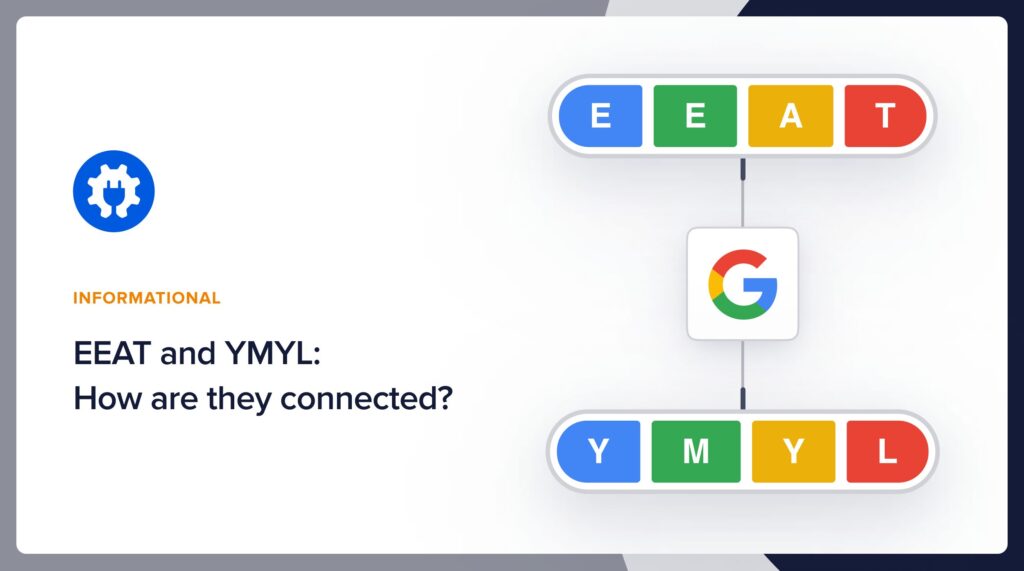Understanding the concepts of EEAT and YMYL can transform your SEO efforts. Even if you don’t have a YMYL site, EEAT is vital for your online success.
In this article, you’ll learn what these concepts mean and how to take action to give yourself an SEO advantage.
First, let’s start with a brief introduction to EEAT and YMYL. Then, we’ll fill in the details and provide an action plan.
In This Article
An Introduction to EEAT and YMYL
EEAT and YMYL are acronyms coined by Google.
- EEAT stands for Experience, Expertise, Authoritativeness, and Trustworthiness.
- YMYL stands for Your Money or Your Life. This refers to websites that dispense medical, financial, or well-being advice.
Google looks for EEAT signals when evaluating websites. While EEAT is essential for all websites, it’s weighted even more heavily for YMYL sites where misinformation can damage the finances or health of individuals.
Now, let’s look closer at EEAT to understand how you can make it work for you.
Understanding EEAT
First, EEAT is not a ranking factor. That’s because, as a qualitative rather than quantitative measure, it can’t be calculated by an algorithm.
Instead, EEAT is part of Google’s Search Quality Rater Guidelines. Human evaluators use these guidelines to assess the quality and trustworthiness of websites.
Google’s evaluators don’t affect a website’s ranking. But Google pays attention to the data to determine how well its automated ranking systems work.
Are the algorithms surfacing the most trustworthy sites? The ones most helpful to searchers?
These are the questions that EEAT helps to answer.
But what exactly is EEAT, and how do you communicate that your site has good EEAT?
What Makes For Good EEAT?
Let’s look at each letter in the acronym to answer that question.
Keep in mind that there’s a lot of overlap between these.
Experience
The first “E” refers to “first-hand, life experience.” Examples of websites signaling experience include:
- A digital nomad blog that documents the writer’s travels. Instead of writing about exotic places never visited, the blog features real travel experiences through photos, videos, and writing.
- A product review site that provides ample proof the reviewer used the product.
- A recipe site by a cookie enthusiast. The high ratings and customer comments show that the baker’s experience is valued by her readers.
- A blog by an individual on overcoming a health issue.
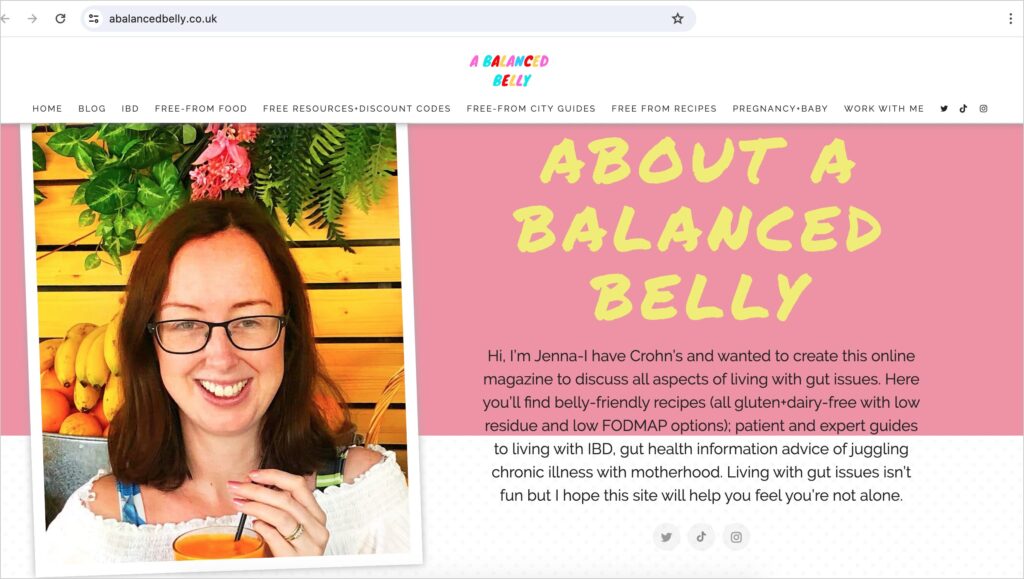
Expertise
Expertise can be formal or informal. For example, our baker in the previous example doesn’t need a PhD in cookies to enjoy SEO success. She simply needs to share something highly valued by her readers.
In her case, her cookie-baking experience is her expertise.
An excellent way to think of expertise is to ask yourself: What have others told you you’re good at? How can you show others this is your specialty?
Expertise can be expressed in formal ways, too, including by industry and education credentials, curriculum vitae (CV), and career bios.
Some examples of websites displaying expertise may include:
- A blog by a retiree who shares insights from their career niche.
- A research center blog documenting recent projects.
- A web developer’s blog on coding.
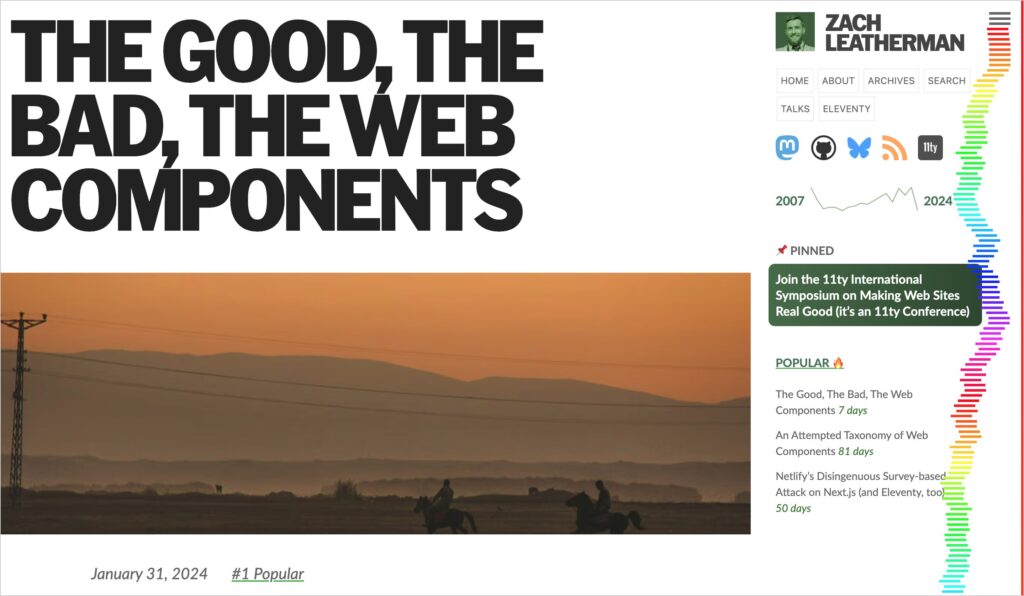
Authoritativeness
Authoritativeness is a relative measure of the information value of a website. Like the twin “E”s, this may overlap with other measures, and authoritativeness may depend on a page’s topic.
For instance, a premier cancer center website will be highly authoritative in discussing cancer treatments. However, the blog of a cancer patient provides readers with valuable life experiences.
Trustworthiness
This aspect of EEAT can be inferred by common sense. Ask: What factors influence you when you decide to do business with someone in person?
- If a website has a checkout feature, is it secure, or does the site engage in poor practices like asking you to email your credit card number?
- Transparency about who is behind a site and who the authors of articles bolsters trustworthiness.
- Testimonials, a type of word-of-mouth marketing, can also foster trust.
Why is EEAT Crucial for YMYL Sites?
While EEAT is important for all websites, it’s crucial for YMYL sites.
Remember, YMYL sites dispense advice that can impact people’s health, finances, or well-being.
YMYL sites include those that offer:
- Medical advice
- Investment and trading advice
- Personal safety information
An example of the latter might be a website that shares evacuation route information related to hurricanes or other disasters.
Because acting on this advice can be life-changing, Google applies the highest standards for these websites.
How does that relate to EEAT?
Expect to prove why your advice is trustworthy. For example, if you urge readers to take certain trading courses, take particular supplements, or make specific investments, why should they (or Google) trust you?
Realize, too, that there’s a difference between a person positioning themselves as an expert on a YMYL topic and an individual sharing their experiences in trading, finance, or health.
Examples of YMYL Sites
Now, let’s look at some examples of YMYL sites to see how they handle EEAT.
We’ll start with the Clever Girl Finance site.

CleverGirlFinance.com: Personal Finance Blog
The CleverGirlFinance blog is about “Empowering women to ditch debt, save money, and build real wealth!”
Founded by Bola Sokunbi, the blog has grown remarkably over the years, even to the point of attracting an angel investor.
Bola’s not shy about sharing her EEAT, which includes:
- Awards
- Certifications
- Books she’s authored
In addition, each article features an author byline, a reviewer byline, and a fact-checker byline.
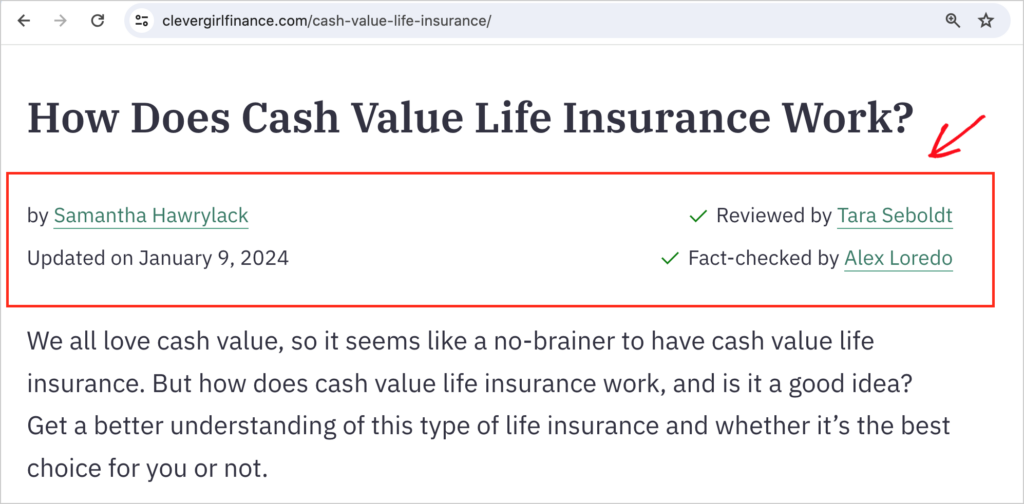
CleverGirlFinance shows that it takes quality and accuracy seriously. And that makes for good EEAT.
Now, let’s look at a large corporate site and a medical institution site.
Investopedia: Example of a Finance YMYL Site
Investopedia is a well-established finance and investing site. On articles dealing with investing, you’ll see an author name, reviewer name, and fact-checker name.
All those names are hyperlinked to display a bio.
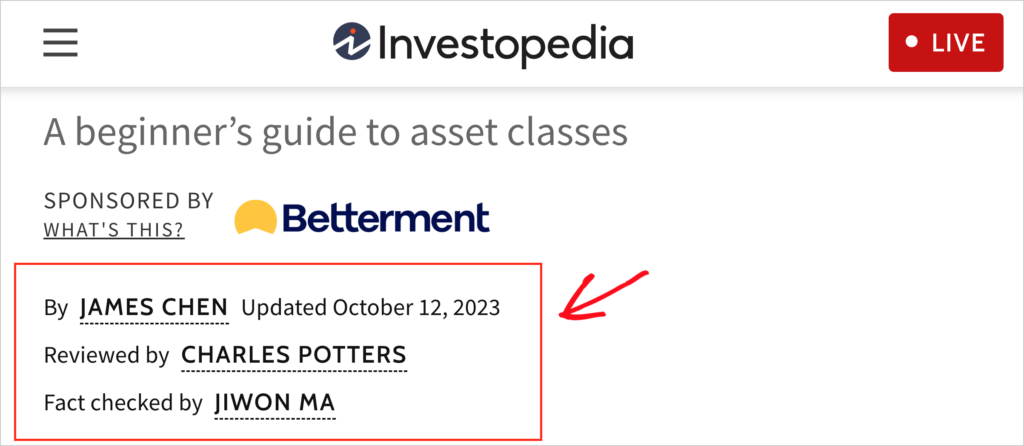
In this way, Investopedia meticulously provides accurate information to its readers.
Cleveland Clinic: Example of a Medical YMYL Site
Similarly, the world-renowned Cleveland Clinic has professionals review its content.
For instance, this article on allergy shots has review information posted at the bottom of the page.

Now, let’s look at how you can express your EEAT quickly and consistently – whether or not you have a YMYL site.
How to Add EEAT to Your Site
All of our recommendations for EEAT are easy to implement. We’ve included some recommendations specific to local businesses as well.
Let’s start with a form of EEAT that applies to all websites.
1. Add Author SEO
We recommend that WordPress site owners use the All in One SEO (AIOSEO) plugin to improve their E-E-A-T signals. This is done via the plugin’s Author SEO feature.
Here’s how it works. You fill out a form telling us about yourself, what social media networks you’re on (if any), and what topics you’re knowledgeable about. You’ll create a short bio and a longer one.
The short bio appears on articles, with a hyperlink to a more detailed bio.
There are options for listing which school you’re an alumnus of, your employer, and your job title.
Here’s an example of a bio we created for a physician assistant’s personal blog.

The gray boxes list topics she’s well-versed in. And there are clickable social icons at the bottom.
Clicking on See Full Bio takes us to a page listing a longer bio and all the author’s articles.
Schema markup: All in One SEO (AIOSEO) adds code called schema markup behind the scenes to ensure Google understands your bio and areas of experience or expertise.
Follow these instructions to add this EEAT information to all your articles.
Add a Reviewer or Fact-Checker: YMYL site owners can easily use the Author SEO module to add reviewer or fact-checker bylines next to author bylines.
Here’s an example of how WPForms uses this to communicate their high editorial standards.
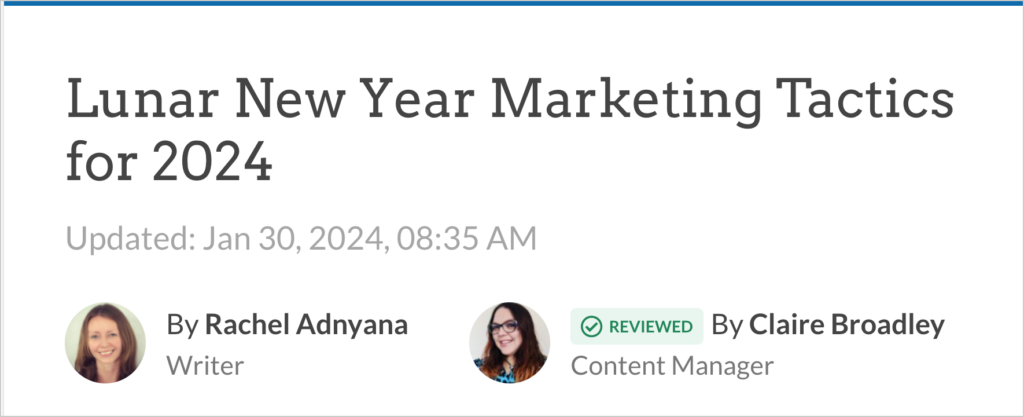
Optimizing for Ranking: Keep in mind that All in One SEO provides everything you need to optimize your web pages for SEO.
It’s designed to be easy for a beginner to use while achieving pro-level results.
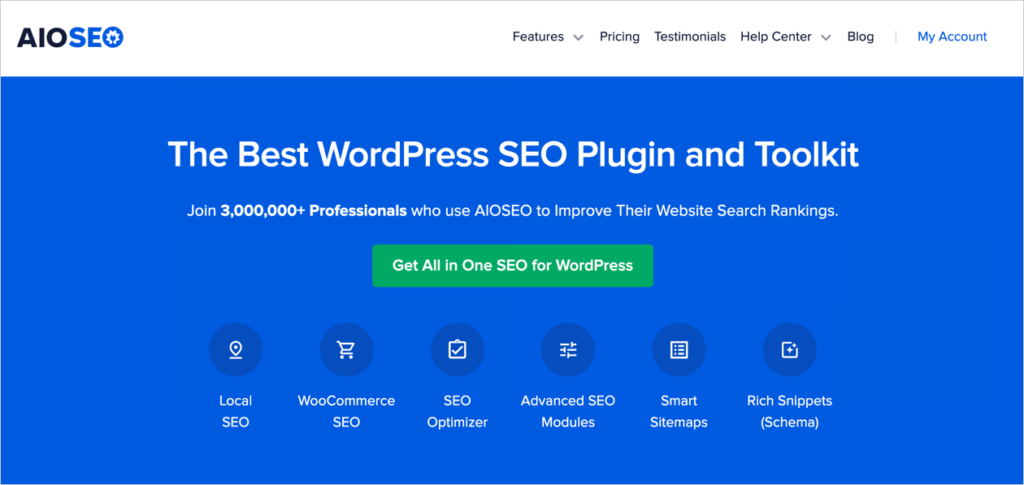
All in One SEO is an established plugin with thousands of 5-star reviews on WordPress.org. Currently, over 3 million people are using the plugin.
2. Publish Testimonials
Testimonials offer a powerful signal about the honesty and trustworthiness of a website’s owner(s).
Don’t have any testimonials? Start by asking for a few. Even just 1-3 testimonials can make a difference in how users and Google perceive your site.
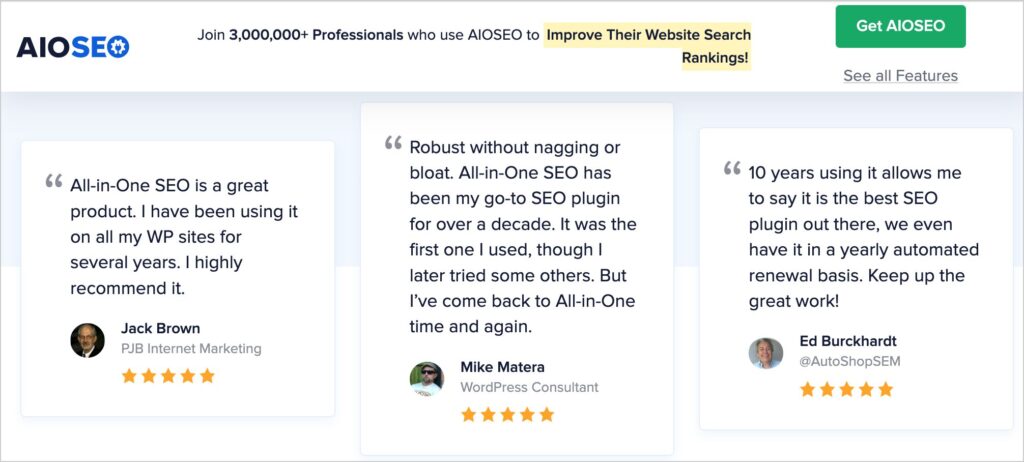
If you own a small business, whether a YMYL business or not, the following local SEO actions will help boost your EEAT even further.
3. Create a Google Business Profile
If you have a local business or non-profit, with or without a physical location, set up a Google Business Profile.
It’s free and easy to do. Be sure to optimize your profile.
When people search for your business, they’ll see a prominent display in search results, thanks to your Google Business Profile.
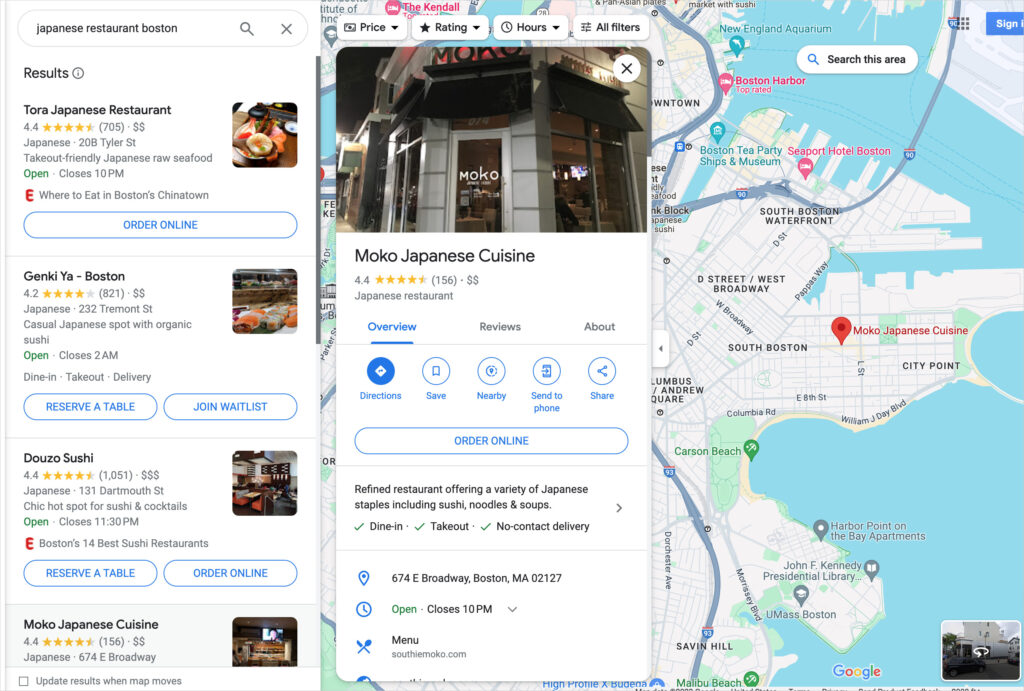
4. Collect Google Reviews
Once you set up a Google Business Profile, your customers can leave reviews. These reviews are proven to impact consumers’ shopping decisions significantly.
And Google Reviews are the most trusted in the industry, according to research by BrightLocal.com.
Learn more about How to Manage Google Reviews for Improved SEO.
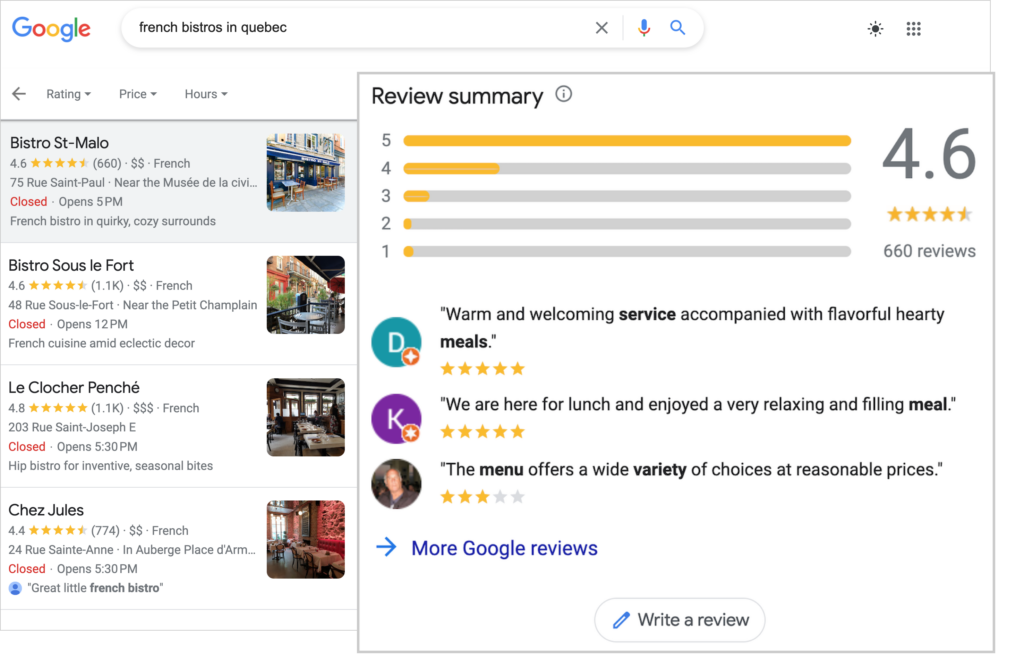
5. Get Listed in Business Directories
Many consumers are reassured when they can see mentions of a business on more than 1 website.
For this reason, and because business directories like Yelp and Thumbtack often rank high in search results, getting your business listed in directories is a good idea.
Learn how to get your business listed.
Note: This process includes getting vetted by data aggregators and giving Google (and GPS systems) confidence that your business and location information is accurate.
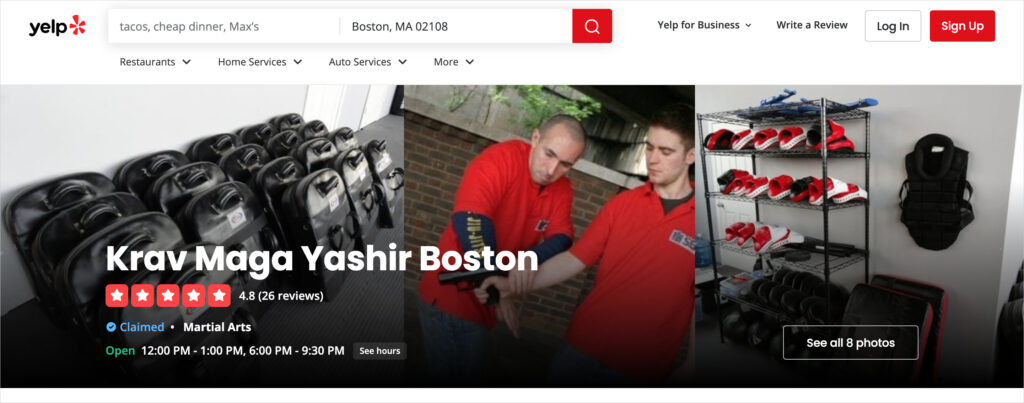
6. Broadcast Community Involvement
If your business is involved in local charities or events, share that information online. This can be as simple as sharing photos or posts on Facebook.
Communicating your community involvement to Google and prospects can boost trust in your business.
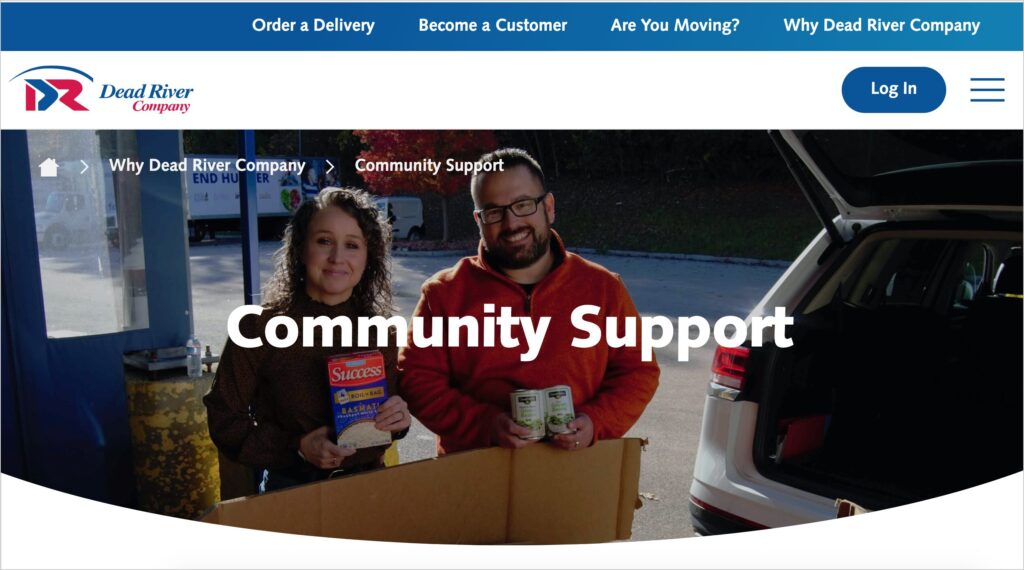
7. Link to Socials or Related Websites
If you have related social media accounts, be sure to list these on your website.
Likewise, if you have a separate personal blog relevant to your site, consider linking to that, too.
These links can boost transparency with Google and prospects.
Learn more about How to Add Social Media Profiles to Your WordPress Site’s Schema.
Want to display social feeds on your website? Check out SmashBalloon’s fast-loading solution.
8. Share Media Coverage or Citations
Similar to the last point, if you’ve been cited in local news, your local Chamber of Commerce, or other trustworthy websites, share this information on your website and social media.
This type of 3rd-party coverage can help boost trust.

Q&A on EEAT and YMYL
Do I need to have a YMYL site to use the “fact-checked by” and “reviewed by” features of AIOSEO’s Author SEO?
No, you do not need a YMYL site to use these features. They can provide value wherever editorial quality and integrity are paramount.
What’s the difference between E-A-T and E-E-A-T?
Google added an extra E (for Experience) to E-A-T in December of 2022. The acronym changed to E-E-A-T (Experience, Expertise, Authoritativeness, Trustworthiness).
Experience highlights the importance of first-hand knowledge, such as in product reviews or accounts of life experience.
It also helps to underscore the fact that content drawn from personal life experiences is valuable and that, in such cases, formal expertise, as in credentials or degrees, is not necessary.
Learn more in Google’s E-E-A-T announcement.
Resources on EEAT
- Boost Author SEO with Google’s E-E-A-T Approach
- How to Boost Your Author SEO in WordPress
- What is Google E-E-A-T?
- Get to Know E-E-A-T and the Quality Rater Guidelines
Tables of Google Algorithm Changes related to EEAT and YMYL
The table below shows some of the major algorithm updates from Google focusing specifically on improving assessment of expertise, authoritativeness, and trustworthiness of pages and content.
These changes show how critical E-A-T has become in SEO.
| Year | Update | Description |
|---|---|---|
| 2015 | Quality Update | Google update to filter low-quality content and prioritize pages with expertise/authoritativeness. |
| 2018 | YMYL Update | Google introduces the concept of “Your Money or Your Life” pages that require high E-A-T to rank well. |
| 2019 | Medic Update | An update aimed at better rating medical YMYL pages in search results using E-A-T factors. |
| 2022 | Helpful Content Update | An update aimed at surfacing more helpful, trustworthy content for searchers, heavily weighted on E-A-T. |
After EEAT and YMYL . . .
Communicating EEAT is a linchpin in every SEO strategy.
Now that you know how to do this, what’s next?
- Discover how to use person schema.
- Learn George Orwell’s 6 Rules for Writing.
- Explore our on-page SEO checklist.
And don’t forget to plan for conversions.
Join us on our YouTube Channel. We publish fresh content every week. And follow us on X (Twitter), LinkedIn, or Facebook to stay in the loop.
Disclosure: Our content is reader-supported. This means if you click on some of our links, then we may earn a commission. We only recommend products that we believe will add value to our readers.
